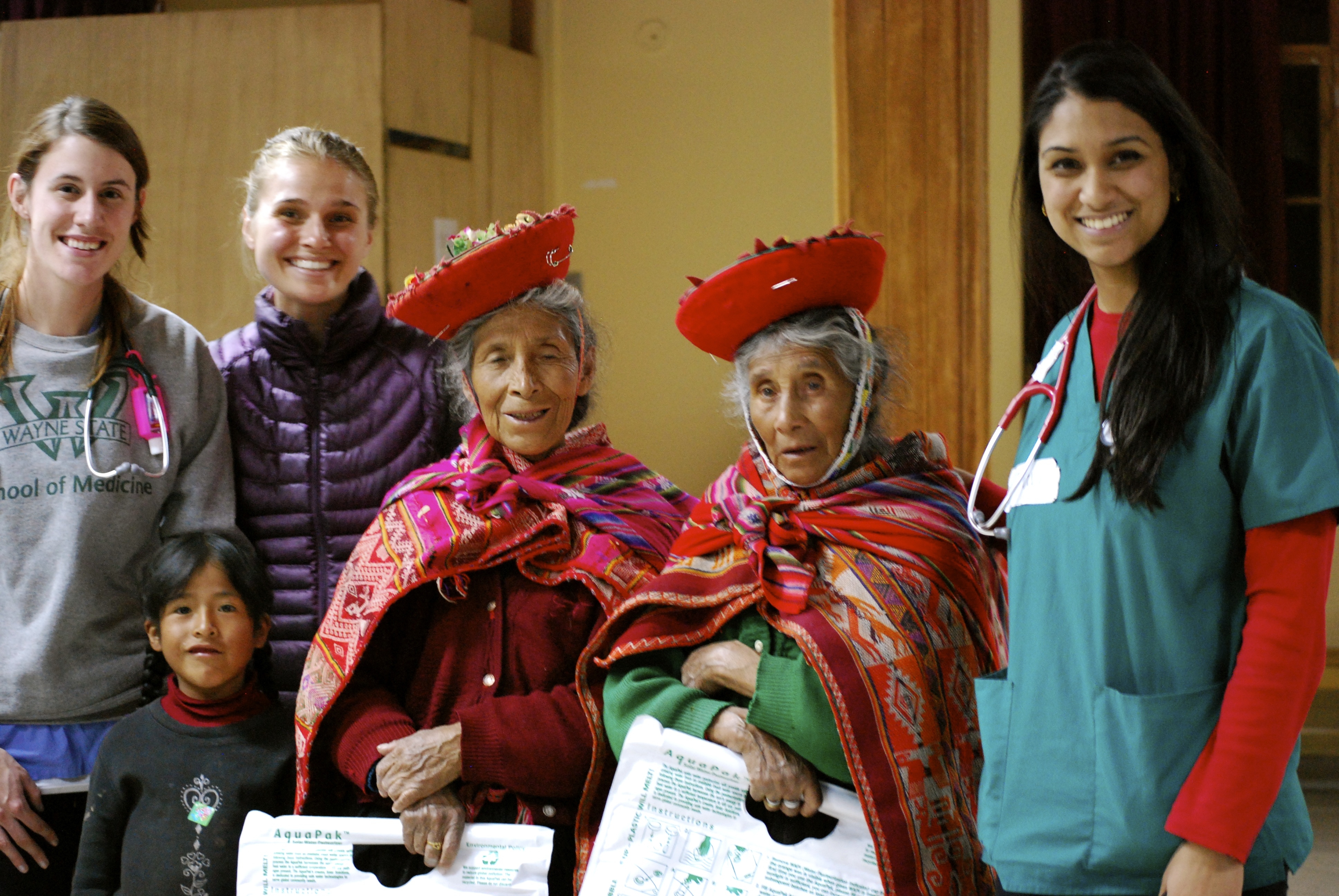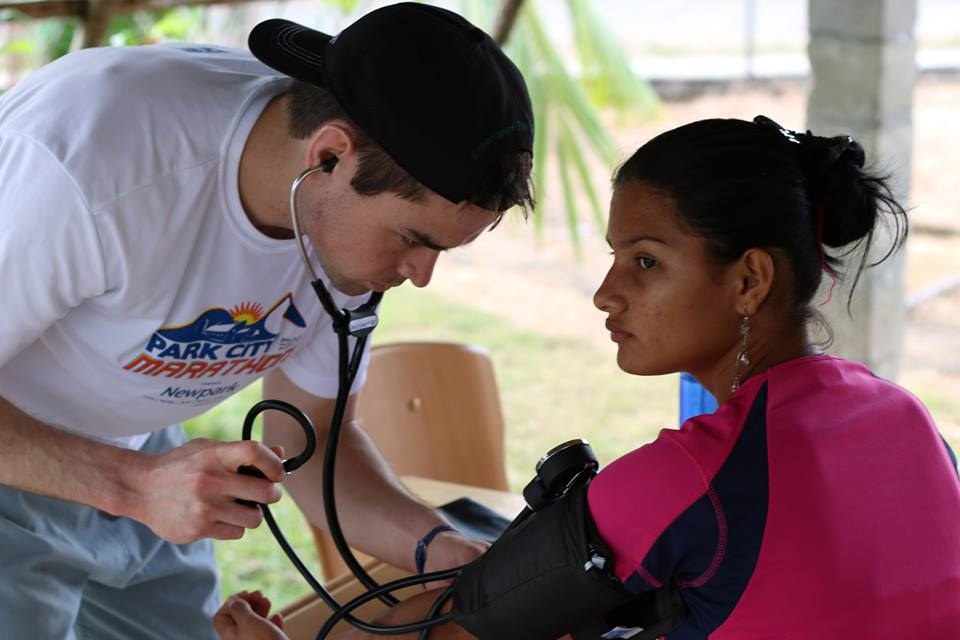School of Medicine freshmen spend spring break gaining hands-on training during overseas missions

The first year of medical school lays the critical foundation for clinical success, but the intensive hours spent in lectures and libraries can often leave students yearning for a taste of real-world practice. So it's not surprising that dozens of School of Medicine freshmen took advantage of an opportunity to provide basic medical care for underserved individuals in Haiti, Peru and Panama through missions sponsored by the school's World Health Student Organization.
The students set up makeshift clinics and delivered health care, vitamins and medicine under the supervision of the Detroit-area physicians and senior medical students. Each group worked with a host organization while abroad, and was responsible for raising money and soliciting donations to bring the supplies needed for the clinics.
"The trip was a reminder of why we're in school," said Christian Mehregan, who worked at clinics in the rural Panamanian cities of Arriti and Zimba. "The learning we're doing this year will be the backbone of everything we do, but it was really exciting to experience working with people and to see what we'll be doing for the rest of our lives."
Mehregan (below), who volunteers in Detroit-based clinics, said he and other students worked with supervisors to conduct patient  interviews, provide physical examinations, give diagnoses and write referrals. Locals visited the clinics by the score for help with fungal and bacterial infections, physical injuries and other conditions.
interviews, provide physical examinations, give diagnoses and write referrals. Locals visited the clinics by the score for help with fungal and bacterial infections, physical injuries and other conditions.
"There's a shortage of physicians in Panama and the rural areas are the first to feel it," Mehregan said.
Patrick Wloszczynski, who requested the mission to Haiti to help address the extensive problems persisting since the 2010 earthquake, served at a clinic in Morne L'Hopital. Working out of a burned-down pharmacy and a nearby church, Wloszczynski helped triage patients, take vitalsand provide physical exams. He listed parasites, infections, hypertension and acid reflux as the most pervasive conditions among those who came for care.
"The people were so grateful we were there," said Wloszczynski, who also questioned patients about access to health care for a research project. "Many of those experiencing problems were relieved just to have someone explain what was happening to them."
Bhavika Chepuri (top, right), who worked out of a clinic in mountainous Ollantaytambo, Peru, said the mission gave her valuable training in health education including educating area residents about ways to treat cuts, burns, dog bites, hemorrhages, breaks and sprains. Working with "promotoras" - respected local women who influence community practices - the students also conducted a reproductive health campaign that proved popular with men and women alike.
"It was so gratifying to hear people say, 'We've had this happen in our family but until now we didn't know what to do,'" said Chepuri. "It was so great to give them lifesaving techniques for these situations, and to realize that health care doesn't always require medication. This is particularly important to keep in mind in places with limited resources, where the people need advice on how to work with less at hand."
Chepuri, who said back pain and musculoskeletal problems were frequent complaints among the farming population served by the clinic, called the mission "a really nice change of pace for us. We got to see the things we'd been reading about all year, and for the first time really have enough information to problem-solve and put together a diagnosis."
Mehregan, Wloszczynski and Chepuri said they feel a strong connection to the countries they visited, and all would consider joining another medical mission.
"Since I've gotten back from the trip, I've thought about it almost every day," said Wloszczynski. "It's reaffirmed every desire I've had to go to into medicine. To be able to see patients, treat them, connect with them - even with a language barrier - has given me a boost to make it through the next two years of reading."
For more details about the three missions, read the blogs kept by Mehregan (http://prognosis.med.wayne.edu/article/blogging-around-the-world-christian-mehregan-in-panama), Wloszczynski (http://prognosis.med.wayne.edu/article/blogging-around-the-world-patrick-wloszczynski-in-haiti) and Chepuri (http://prognosis.med.wayne.edu/article/blogging-around-the-world-bhavika-chepuri-in-peru).